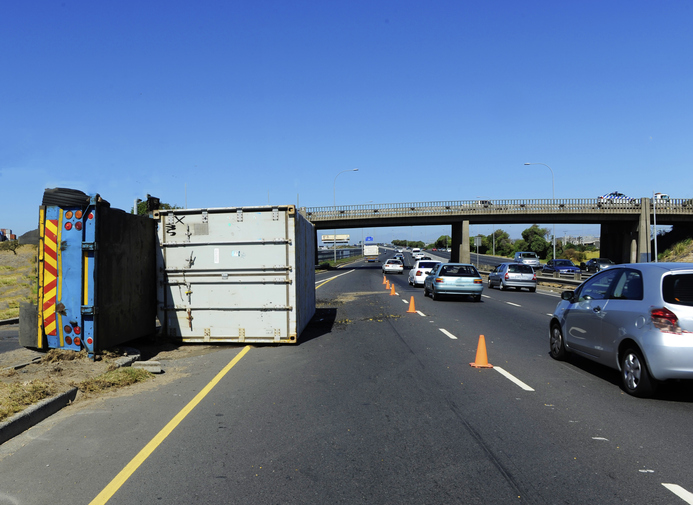When sharing the road with large commercial trucks, you probably notice their sheer size, but have you thought about how their weight and cargo might affect an accident? Truck accidents in Austin, TX, can be particularly severe, especially given the bustling highways and increasing traffic in the area. Whether you’re a motorist, a passenger, or even a cyclist, understanding the role of weight and cargo in truck accidents can not only elevate your road awareness but also help you know your rights if involved in an unfortunate collision.
Why Weight and Cargo Matter in Accidents
A loaded 18-wheeler can weigh up to 80,000 pounds, compared to the average car, which weighs around 4,000 pounds. When you consider this weight disparity, it’s no surprise that truck accidents tend to result in catastrophic damages and injuries. But why exactly does weight and cargo make such a difference during a crash?
1. Longer Stopping Distances
Heavy trucks require significantly more time and distance to come to a complete stop. For instance, while a passenger vehicle traveling at 65 mph might stop in about 300 feet, a fully loaded truck could require over 500 feet. This increased stopping distance often causes rear-end collisions, particularly in high-traffic areas like I-35 and US-183 in Austin.
2. Greater Momentum
Physics plays a big role here. A heavily loaded truck carries more momentum, which amplifies the force of impact during a crash. This means that if a loaded truck collides with a smaller vehicle, the smaller vehicle is likely to sustain substantial damage. Occupants may suffer serious injuries such as spinal cord trauma or traumatic brain injuries.
3. Shifting or Improperly Secured Cargo
An overloaded or improperly secured cargo load can cause a truck to become unstable. When cargo shifts during transit, it can lead to tipping over or jackknifing, particularly during sharp turns or sudden maneuvers. Unsecured cargo may even spill onto the road, creating additional hazards for other drivers. Anyone who’s driven through Austin during rush hour knows how dangerous sudden road hazards can be.
4. Impact on Maneuverability
Trucks carrying heavier loads or oversized cargo are less agile. They can’t swerve or change lanes quickly, making it harder to avoid accidents. Tight downtown areas, narrow lanes on FM 2222, or busy intersections near South Congress Avenue highlight just how challenging maneuverability can be for large trucks.
Types of Accidents Linked to Weight and Cargo
Weight and cargo issues contribute to several common types of truck accidents. Here are just a few:
1. Jackknife Accidents
When the truck’s trailer swings out at an angle, it can block multiple lanes of traffic, often due to sudden braking or shifting cargo.
2. Rollover Accidents
A truck’s high center of gravity is even higher when heavy or unbalanced cargo is involved, making rollovers more likely, especially during sharp turns or steep inclines such as those near the Hill Country.
3. Underride Crashes
These occur when a smaller vehicle ends up trapped beneath the truck’s trailer. The severity of these accidents often correlates with the truck’s weight and speed.
4. Spill-Related Accidents
If a truck’s cargo spills onto the road, it can create obstacles or slick surfaces, triggering a chain reaction of secondary accidents.
Who Is Liable When Cargo Causes a Crash?
Determining liability in a truck accident is rarely straightforward. When weight and cargo issues are involved, multiple parties might share responsibility, including:
1. Truck Driver
Drivers are responsible for inspecting their trucks and ensuring that cargo is properly secured before hitting the road. If they fail to notice issues with their load and proceed to drive anyway, they may be held liable.
2. Trucking Company
The company that owns the truck might be responsible if improper loading practices or scheduling pressures (e.g., skipping weigh stations) led to the accident.
3. Loading Crew or Freight Handler
If a third-party loading crew improperly secured or overloaded the cargo, they could share responsibility for the crash.
4. Maintenance Provider
Cargo accidents can sometimes result from mechanical issues, like faulty brakes. Maintenance providers who fail to identify and fix these issues might be held accountable.
5. Manufacturer
If defective components (like tie-down straps or cargo fasteners) played a role, the product manufacturer might be liable for damages.
What Compensation Is Available for Victims?
Truck accident victims in Texas may be entitled to seek compensation for various damages. These include:
1. Medical Expenses
From emergency room visits to long-term rehabilitation, truck accident injuries can generate steep medical bills. Victims can pursue compensation for treatments, medications, and even medical equipment.
2. Lost Income
If injuries prevent you from working, you can recover wages lost during your recovery. For those with permanent disabilities, compensation may also include loss of earning capacity.
3. Pain and Suffering
Truck accidents often cause more than just physical injuries. Compensation may also cover emotional distress and reduced quality of life.
4. Property Damage
Replacing or repairing your vehicle is another cost you shouldn’t bear alone.
5. Wrongful Death
For families who’ve lost a loved one due to a truck accident, compensation might also include funeral expenses and loss of companionship.
How to Protect Yourself After a Truck Accident
If you’re involved in a truck accident, taking immediate action is crucial. Here’s what you should do:
1. Seek Medical Attention Immediately
Even if you feel fine initially, symptoms may appear later. Prompt medical care protects your health and establishes a record of your injuries.
2. Document the Scene
Take photos of the accident scene, damaged vehicles, and any visible injuries. If possible, collect witness statements and contact information.
3. File a Police Report
An official police report can strengthen your case and clarify the chain of events.
4. Consult a Truck Accident Attorney
Trucking companies have powerful legal teams. Hiring an experienced truck accident lawyer ensures you have someone fighting for your rights and fair compensation.
Why Local Expertise Is Key
Navigating a truck accident claim in Austin, TX, requires understanding local roads, trucking routes, and state-specific laws. For instance, Texas has a two-year statute of limitations for personal injury claims. Consulting an attorney who knows Austin’s unique legal and road conditions can give you a significant advantage in your case.
The Austin Perspective
Austin's rapid growth has increased the presence of large trucks on highways and the risk of truck accidents. Key corridors like I-35 and Hwy 290 see heavy truck traffic daily. An attorney familiar with Austin can leverage insights like accident patterns or jurisdictional nuances to build a stronger case.









